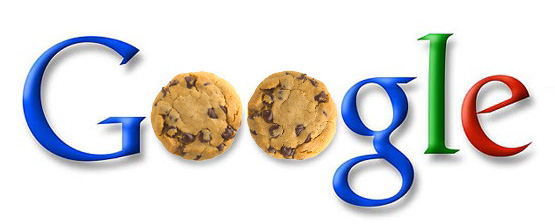Google considers ditching 'cookies'
Posted by: Jon Ben-Mayor on 09/18/2013 08:42 AM
[
 Comments
]
Comments
]
Google is considering dropping cookies for marketing purposes with the implementation of an anonymous identifier for advertising which is currently being developed; AdID effectively would replace the way advertisers track people's internet browsing activity.
The AdID would be transmitted to advertisers and ad networks that have agreed to basic guidelines, giving consumers more privacy and control over how they browse the Web, the person said, on condition of anonymity.

The person did not want to be identified because Google has not made the proposal public — although the company plans to reach out to industry participants, government bodies and consumer groups in coming weeks and months.
"Technological enhancements can improve users' security while ensuring the Web remains economically viable. We and others have a number of concepts in this area, but they're all at very early stages," Google spokesman Rob Shilkin said. He declined to comment further.
Google's move will be closely watched by the ad industry because the company is not only the leader in online advertising, its Chrome browser is now the world's most popular, having surged ahead of Microsoft's Internet Explorer, Mozilla's Firefox and Apple's Safari in recent years.
Apple's Safari browser has blocked third-party cookies since its introduction in 2003, and the technology giant introduced its own ad identifiers for its iOS mobile platform last year.
If Google follows through with its own version of this approach, that could give users more control over how they are tracked online. However, it will also put more power in the hands of two of the largest technology companies, according to some people in the advertising industry.
The AdID would be transmitted to advertisers and ad networks that have agreed to basic guidelines, giving consumers more privacy and control over how they browse the Web, the person said, on condition of anonymity.

The person did not want to be identified because Google has not made the proposal public — although the company plans to reach out to industry participants, government bodies and consumer groups in coming weeks and months.
"Technological enhancements can improve users' security while ensuring the Web remains economically viable. We and others have a number of concepts in this area, but they're all at very early stages," Google spokesman Rob Shilkin said. He declined to comment further.
Google's move will be closely watched by the ad industry because the company is not only the leader in online advertising, its Chrome browser is now the world's most popular, having surged ahead of Microsoft's Internet Explorer, Mozilla's Firefox and Apple's Safari in recent years.
Apple's Safari browser has blocked third-party cookies since its introduction in 2003, and the technology giant introduced its own ad identifiers for its iOS mobile platform last year.
If Google follows through with its own version of this approach, that could give users more control over how they are tracked online. However, it will also put more power in the hands of two of the largest technology companies, according to some people in the advertising industry.
Comments






